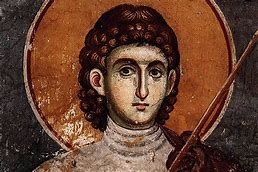
Procopius was born in Caesarea in Palestine late in the fifth century and died not earlier than AD 562. He is known as one of the greatest later Greek historians. He became a lawyer, and in AD 527 he was made legal adviser and secretary of Belisarius, commander against the Persians, and went with Belisarius again in AD 533 against the Vandals, and in AD 535 against the Ostrogoths. After AD 541, or AD 540, Procopius returned to Constantinople. He might have attended Belisarius again when Belisarius and then Narses campaigned against Tutila in Italy.
His History Of The Wars in 8 books recounts the Persian Wars of emperors Justinus and Justinian down to AD 550 (2 books); the Vandalic War and after events in Africa AD 532-546 (2 books); the Gothic War against the Ostrogoths in Sicily and Italy AD 536-552 (3 books); and a sketch of events to AD 554 (1 book). The whole consists mostly of military history, with information about people and places, and special events.
Procopius was a diligent, careful, judicious narrator of the facts and developments and shows good powers of description. He is just to the Empire's enemies and boldly criticizes Justinian. Procopius's education included all the greatest of the Greek historians and geographers, as well as the poets and the orators. An interesting aspect of Procopius is his personal as well as his official familiarity with the people, the places, and the events of which he writes. His account of "Justinian's Buildings" (peri ktismaton) was completed in A.D. 558 or 559. He is thought to have written it either by Imperial command or to deflect suspicions of disaffection.
The third of his books, the "Anecdota", which Suidas characterizes as "a satirical attack on Justinian", but which is most commonly known by the title of "Arcana histora" (The Secret History). It is a supplement to the other history, tracing events to AD 558-9. In this book Procopius reveals his hatred of Justinian, Theodora, and even Belisarius and his wife. It is a bitter attack against all the powers of the Byzantine Church and State.